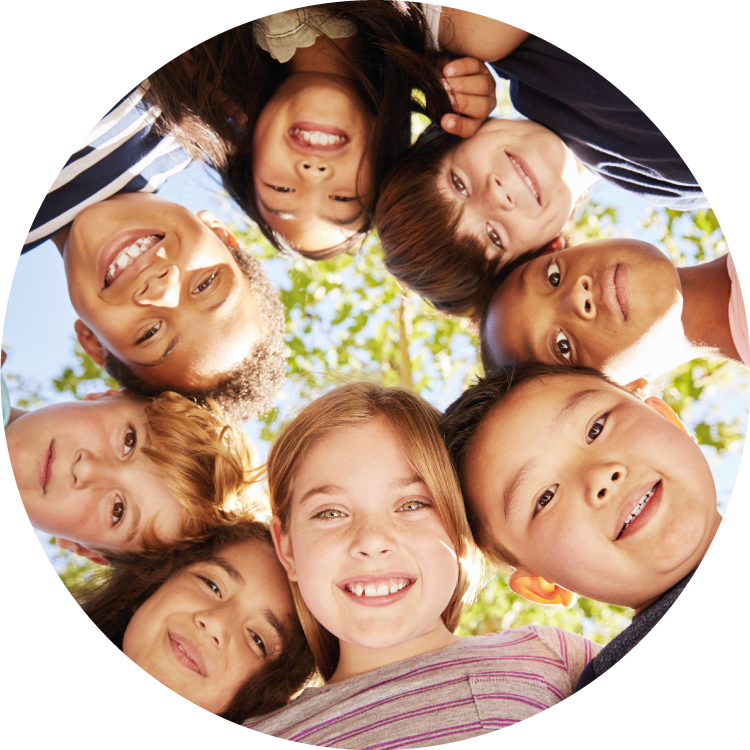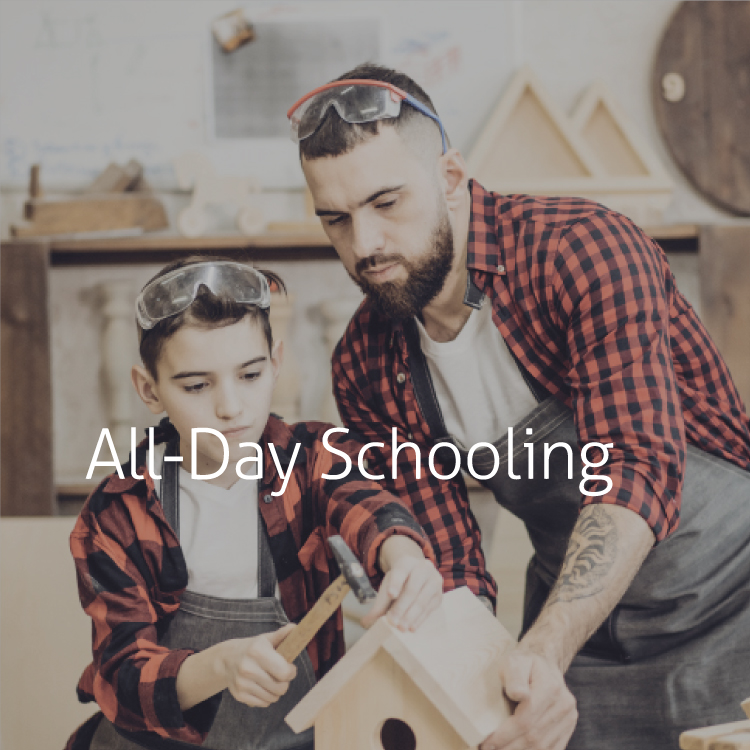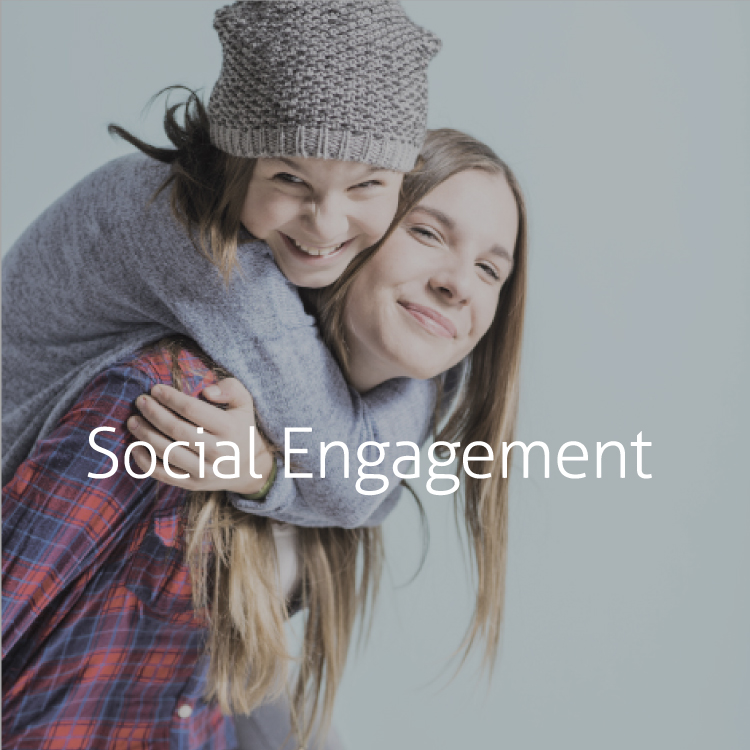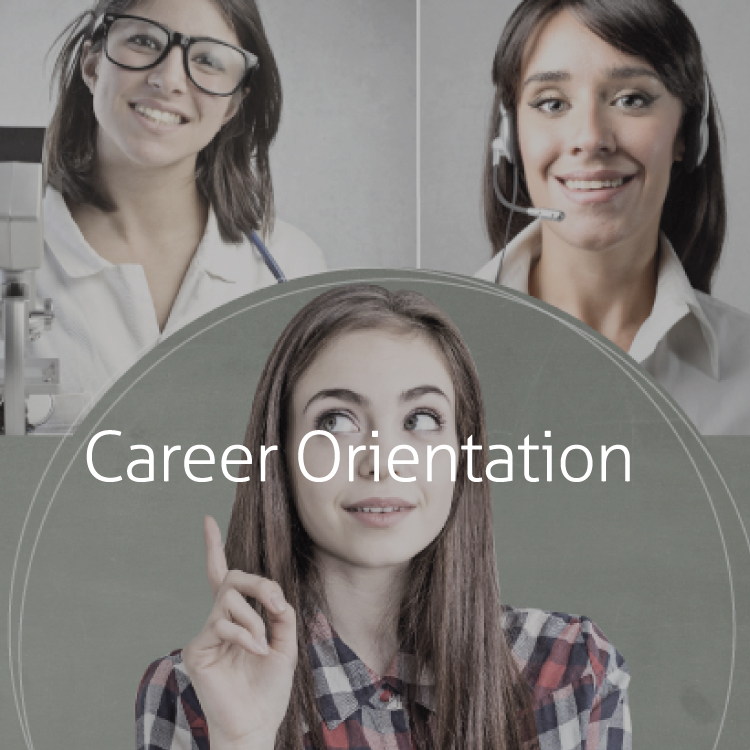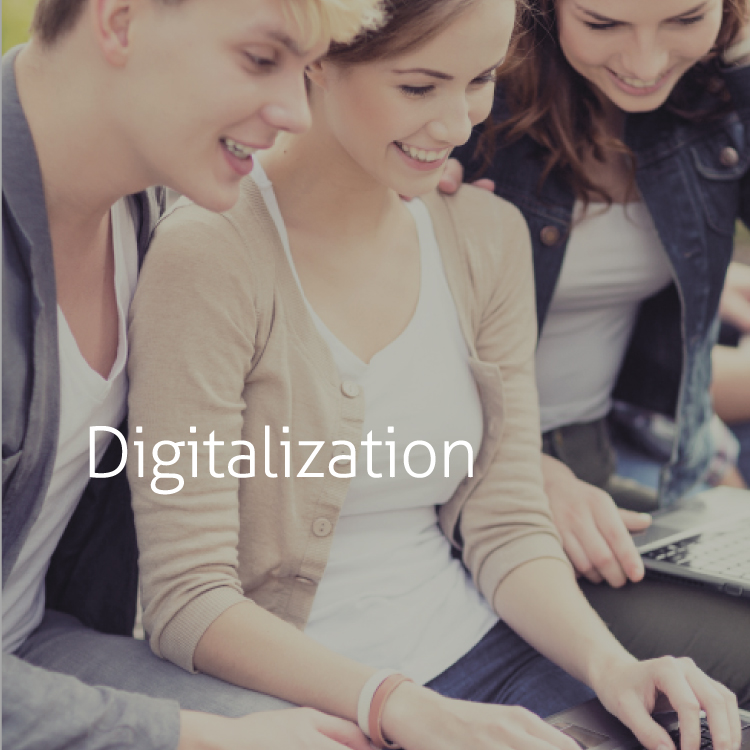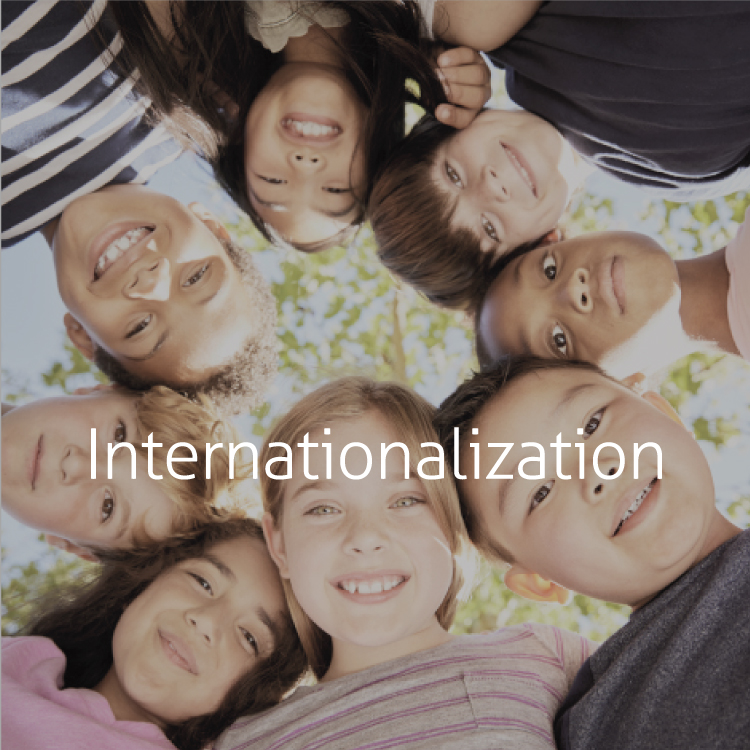All-Day Schooling
In Germany, the school day traditionally lasted from approximately 8 a.m. to 1 p.m., particularly at the elementary level. All-day schools are defined as schools which offer an all-day program (lessons, extracurricular activities and lunch) at least seven hours a day on at least three days a week. The teaching staff is responsible for all extracurricular activities offered at the schools. Moreover, these activities should be related conceptually with the regular lessons.
All FAWZ schools are all-day schools meaning that school lessons and the supervision of the students take place throughout the day and into the afternoon hours.
The full day at school essentially consists of:
- Classical lessons
- Individual learning times
- Study groups and other extra-curricular offers as well
- Remedial classes
The individual offers and the time schedule for the whole day are distinguished at each school and partially supplemented by other offers.
The all-day model opens up many possibilities for us to make everyday school life varied and individual. Learning units alternate with leisure activities which creates a balanced full day, and benefits the development of our students.
The aim of the full day is that our students learn all day and in every situation. So, learning does not only take place in class, but also during other activities in different areas. The different and varied offers strengthen our schools as a place of learning and living.
By supervising until the afternoon, parents can better combine family and work. This creates a good work-life balance or school-life balance for the students.
Extracurricular Activities
Extracurricular and leisure activities are offered individually at each school. They are based on the interests of the students and are constantly being adapted.
You can find out more about our Campus Life activities here.
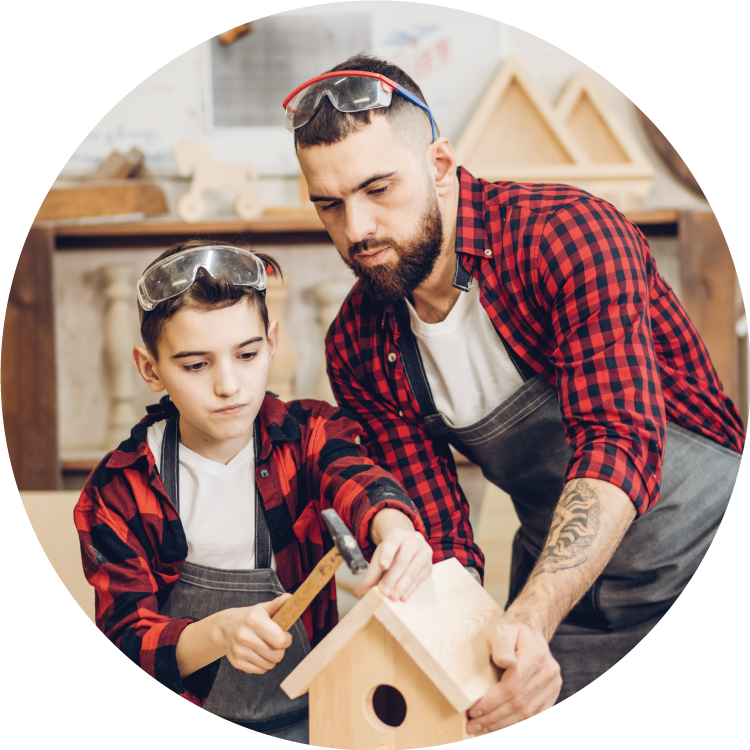

Social Engagement (Service Learning)
Learning through engagement is a teaching method that combines social engagement with school knowledge. Relocating learning to facilities outside of school imparts skills that cannot be developed in the normal classroom.
The aim is for the students to take responsibility in the school’s social environment (close to where they live). This part is integrated into the timetable as a permanent project work.
Our students gain insights into social, ecological and cultural institutions in the vicinity. This has a positive effect on the social development and social skills of the children.
- Learn to carry out assigned tasks responsibly
- It strengthens self-confidence
- Get in contact with younger or older people
- Act in solidarity and experience integration into the community
- Acquire skills and qualifications that they need in all situations of daily life:
- Communication and team skills
- Self-employment
- Accountability
- Involved in solving specific everyday problems and learn to find flexible and creative solutions to questions
- Learn not to be discouraged
Cooperation partners are needed to implement social commitment in everyday school life. For instance:
- Retirement and senior citizens’ facilities
- Municipality and cities (e.g. to maintain green spaces)
- Youth clubs
- Daycare centers and after-school care centers in primary schools
- Technical relief organization (THW)
- Animal welfare institutions
- Social facilities
Profession and Academic Orientation
We pay special attention to career and study orientation. This starts with us at an early age from grade 7 (around 12 years of age).
As part of the career orientation, every child – whether boy or girl – goes through three fixed instances in order to make their first contact with the professional world.
- Potential analysis (1st module in class 7)
- Practical learning (2nd module in class 8)
- Internship (3rd module in class 9)
Potential Analysis (grade 7)
The boys and girls go through various exercise stations here for a day. Here, the seventh graders go through practical and manual as well as commercial, cognitive and social fields in order to get a first brief insight into various professional groups. These exercise stations are available at the location of our school authority in Fürstenwalde.
Practical Learning (grade 8)
During practical learning, our students go out to the workshops for two weeks. Everyone goes through several workshops and these are:
- Color workshop
- Health, education and social issues
- Housekeeping
- Heating, air conditioning and sanitation
- Wood workshop
- Metal workshop
For the practical learning weeks there are cooperation with the regional partner companies.
Internship (grade 9)
In the last component of the career orientation, our students independently look for an internship in their desired area. Then they go to the company for 3 weeks to get a deeper insight into the world of work.
The children collect all impressions of the career orientation in their career choice pass.
From the upper secondary level (from class 11) the professional orientation changes into a study orientation.
The 11th year serves as a training phase for the 2 following years at our schools. From the 12th grade, there are seminar courses for scientific work or for further study orientation. With this, our students prepare for the content-related, methodological, social and personal requirements of the university and the world of work.
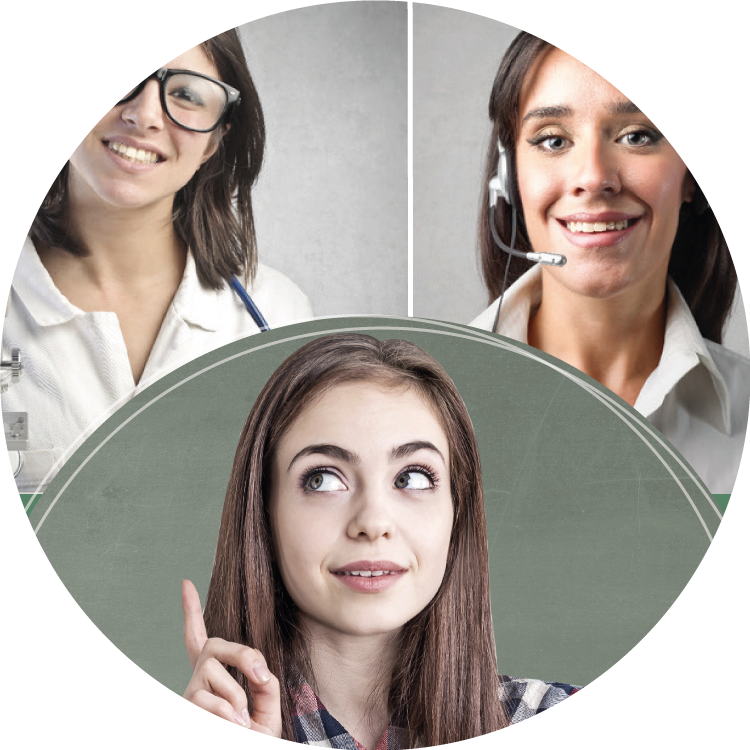

Digitalization
Our schools have high digital standards. All FAWZ schools are equipped with smartboards and have WiFi across the school or campus. In addition, all teachers are equipped with a service laptop based on the latest digital standard.
The Digitalization Pilot Project has already been successful in our first schools in Königs Wusterhausen and Petershagen. Both the teachers and the learners were trained on how to use the hardware and software. There are regular training courses for our teaching staff to strengthen trust in the digital solutions and to become more confident in using them.
In addition to the end devices, all employees and all pupils have their own school and service e-mail addresses. This ensures flawless and diverse communication within our organization in the school and institution.
We have our own school cloud through which our students can access their learning units, materials and assignments. For example, they can also take part in “lessons” in the best possible way in special situations such as the corona pandemic.
And a lot more to come in the field of digital teaching in the future.
Internationalization
We want a lively exchange! In recent years we have gained our first experience with international exchanges. Our students went abroad for a few weeks or even months. At the same time, we have already accepted guest students in our schools.
We have big plans in terms of internationalization! Take a look at what we have to offer and what we are preparing in the international area.
